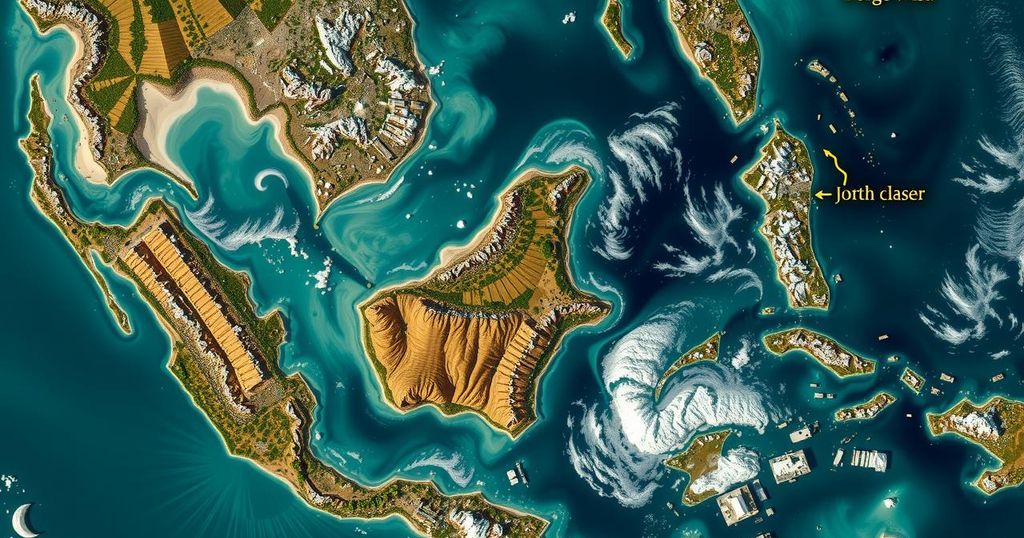Catastrophic Impact of Cyclone Chido on Agalega and Mayotte

Tropical Cyclone Chido struck the Agalega Islands on December 11, 2024, as a Category-4 storm, causing extensive damage to homes and infrastructure. Residents sought shelter as winds peaked at 222 km/h. Following its impact, Chido moved to Mayotte, leading to humanitarian crises with hundreds reported homeless and acute shortages of essential supplies. Authorities fear a significant death toll as recovery efforts continue amid challenging conditions.
On December 11, 2024, Tropical Cyclone Chido struck the Agalega Islands in the Indian Ocean as a Category-4 equivalent storm, marking the most powerful cyclone to impact the area since 1983. With wind speeds reaching 222 km/h (138 mph), substantial infrastructure damage was reported across both islands, severely affecting the population of 330. Residents of the North Island fled to the airport for shelter as raging winds and a storm surge of 8 meters (26 feet) demolished homes and educational facilities, incapacitating local communication systems.
In response to this disaster, Mauritian Minister Shakeel Mohamed confirmed that a Mauritian Coast Guard Dornier aircraft is on its way to assist the affected region, alongside an Indian cargo plane expected to augment relief operations. After making landfall on Agalega, Chido’s course shifted northward, ultimately devastating Mayotte on December 14, causing extensive destruction with winds exceeding 220 km/h (136 mph).
The aftermath of Cyclone Chido left Mayotte grappling with catastrophic conditions, as homes were flattened, trees uprooted, and critical infrastructure, particularly hospitals and the airport, severely impaired. Reports indicate that a significant number of residents—around one-third of Mayotte’s 320,000 inhabitants—have been rendered homeless. Furthermore, the situation has been exacerbated by acute shortages of potable water and medical provisions, complicating rescue and recovery efforts. Emergency teams have been dispatched; however, many areas remain inaccessible due to floodwaters and obstructed roadways.
Officials in Mayotte have voiced concerns over a potentially rising death toll, as hundreds are still unaccounted for. The full extent of the cyclone’s toll on the population and infrastructure continues to unfold, leaving the fate of many uncertain in the wake of this natural disaster.
The Agalega Islands, located in the Indian Ocean, are sparsely populated and vulnerable to severe weather events. Cyclone Chido’s recent impact, classified as a Category-4 equivalent storm, underscores the growing frequency and intensity of tropical cyclones in the region. With historical precedents dating back to 1983, such events pose significant threats to small island communities, often resulting in widespread destruction and an urgent need for humanitarian assistance. The cyclone’s path further extended to Madagascar and Mayotte, illustrating the systemic risks to vulnerable islands in the Indian Ocean.
In conclusion, Tropical Cyclone Chido has exhibited unprecedented strength, severely affecting the Agalega Islands and following with destructive impacts on Mayotte. The storm’s capacity to inflict substantial damage underscores the need for effective disaster preparedness and rapid response systems in the face of increasing extreme weather phenomena, ensuring that communities are supported in their recovery efforts. The ongoing situation emphasizes the urgency for humanitarian aid and highlights the vulnerabilities of the islands to such catastrophic events.
Original Source: watchers.news






